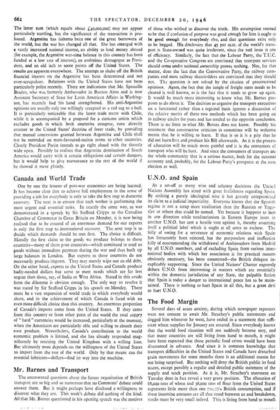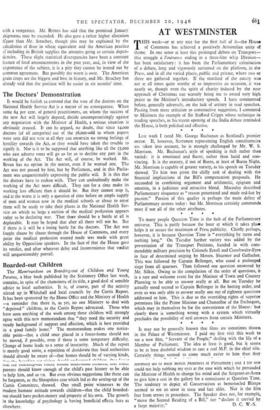The Food Margin
Several days of acute anxiety, during which newspaper reporters were not content to await Mr. Strachey's public statements and dogged him wherever he went, have ended in a statement that suffi- cient wheat supplies for January are assured. Since everybody knows that the world food situation will not suddenly become easy, and that many countries are still living from hand to mouth, it might have been expected that these periodic food crises would have been discounted in advance. And since it is common knowledge that transport difficulties in the United States and Canada have disturbed grain movements for some months there is an additional reason for not being surprised. But nothing will deny the British public its food scares, except possibly a regular and detailed public statement of the supply and stock position. As it is, Mr. Strachey's statement on Tuesday does in fact reveal a very grave position. The allocation of 68,000 tons of wheat and 36,000 tons of flour from the United States represents little more than one t •'-:s British consumption, and if these incoming amounts are all that stand between us and breakdown, stocks must be very small indeed. This is living from hand to mouth
with a vengeance. Mr. Byrnes has said that the promised January shipments may be exceeded. He also gave a rather higher allocation fi"gure than Mr. Strachey, though this may be explained by the calculation of flour in wheat equivalent and the American practice of including in British supplies the amounts going to certain depen- dencies. These slight statistical discrepancies have been a constant feature of food announcements in the past year, and, in view of the importance of the subject, it is a pity they cannot be ironed out by common agreement. But possibly the worst is over. The American grain crops are the biggest and best in history, and Mr. Strachey has already said that the position will be easier in six months' time.



































 Previous page
Previous page